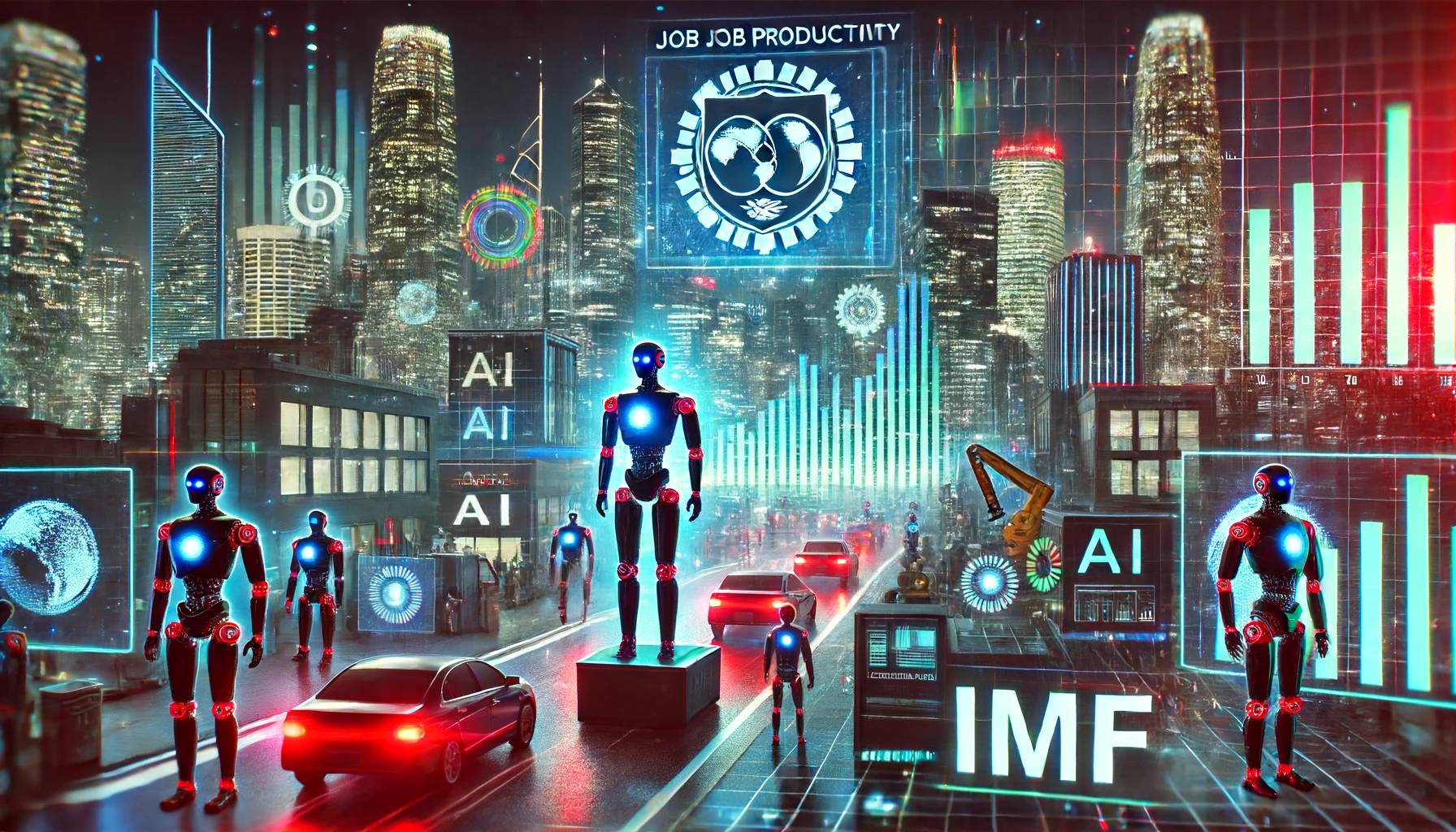The International Monetary Fund (IMF) has warned that AI could lead to massive job losses, widen inequality, and destabilize societies if governments fail to take proactive measures.
In a comprehensive report published today, the IMF outlined the massive potential of generative AI to propel productivity and transform the delivery of public services.
However, the organization also expressed “profound concerns” about the technology’s capacity to disrupt labor markets and exacerbate income and wealth disparities on an unprecedented scale.
Era Dabla-Norris, deputy director of the IMF’s fiscal affairs department and co-author of the report, explained the need for policies that ensure the benefits of AI are widely shared while creating opportunities for workers whose jobs may be displaced by the technology.
“We want people to be able to benefit more broadly from the potential that this technology holds and we want to ensure that there are opportunities created for people,” Dabla-Norris said.
So what suggestions did the IMF propose? Let’s pick out a few themes from the 40+ page report.
A threat to high-skilled jobs
One of the most striking aspects of the IMF’s warning is the recognition that, unlike previous waves of automation that primarily impacted blue-collar and lower-skilled workers, generative AI poses a threat to higher-skilled and white-collar occupations.
The report notes that AI’s ability to generate human-like text, images, and code could render many cognitive tasks performed by professionals such as writers, designers, and programmers obsolete.
This could lead to widespread job losses and a hollowing out of the middle class, with far-reaching implications for social stability and economic growth.
We’ve seen some evidence of this in Hollywood, where AI has threatened to uproot highly skilled jobs in TV and film, from acting to animation.
Consider this: AI can write a novel, compose a piece of music, generate a video, or create an image that wins an art competition but can’t yet properly drive a car.
So, while low-skilled jobs are certainly at massive risk – and are already being replaced en masse in some sectors – those in highly skilled jobs shouldn’t get too comfortable either.
The report notes, “Evidence suggests that while earlier automation waves displaced mostly blue-collar (lower-skilled) workers, white-collar (high-skilled) workers are most exposed to AI.”
Preparing for the AI age
To mitigate generative AI’s disruptive impact and ensure its benefits are broadly shared, the IMF recommends overhauling education and training systems to equip workers with the skills needed to thrive in an AI-driven economy.
The report calls for a greater emphasis on lifelong learning, with governments and businesses investing in sector-based training, apprenticeships, and reskilling programs to help workers transition to new tasks and industries.
Other studies say there’s time to react, with MIT recently predicting that “AI job displacement will be substantial, but also gradual—and therefore there is room for [government] policy and retraining to mitigate unemployment impacts.”
Among fiscal strategies, the IMF report advocates for strengthening social safety nets, including unemployment insurance, to provide a lifeline for those facing job losses due to AI disruption.
“You want to be able to cushion this costly transition and maintain social cohesion in societies,” Dabla-Norris explained.
Taxing AI gains
The IMF report also grapples with the potential for generative AI to concentrate wealth in the hands of a few dominant firms, exacerbating inequality and undermining competition.
The IMF warns that as AI technologies become more sophisticated and widely adopted, they could give rise to “winner-take-all” markets, where a small number of companies with access to vast amounts of data and computing power reap outsized rewards.
Centralization of AI power and wealth is a hot topic in the AI industry, though blockchain technology and open-source AI could mitigate it.
In an interview with DailyAI, David Palmer, CPO at PairPoint by Vodafone, explained, “Blockchain becomes highly relevant in this context. Blockchain can provide the decentralized infrastructure necessary to support and facilitate edge computing for AI. By leveraging blockchain’s distributed nature, we can create secure and efficient systems for AI processing that extend beyond the limitations of centralized data centers.”
The IMF proposes increasing taxes on capital gains, profits, and corporate income to counter this trend and ensure that the gains from AI are more evenly distributed.
It suggests that governments adopt an “agile” approach to policymaking, remaining flexible and prepared for highly disruptive scenarios as the AI landscape evolves.
A global challenge
The IMF’s warning comes amid growing calls for international cooperation and regulation to address the challenges posed by generative AI.
The European Union recently agreed on the landmark AI Act, the first legislation of its kind to target the risks associated with the technology. The act includes provisions for a potential ban on AI applications deemed to pose unacceptable risks to the safety, livelihoods, and rights of EU citizens.
Dabla-Norris stressed the importance of global collaboration in navigating the AI revolution, given the technology’s capacity to transcend borders and reshape economies worldwide.
“Because of the global reach of AI, it’ll be really important more than ever for countries to work together,” she said.
The IMF’s report adds to a growing body of research and analysis highlighting the potential dangers of unchecked AI development.
In January, the organization estimated that AI could affect nearly 40% of jobs globally. Reports from other organizations, such as Goldman Sachs and McKinsey, predict that despite AI uprooting jobs, it will contribute positively to global GDP.
AI is certainly fueling tech stocks, with companies like NVIDIA rocketing in value as demand for the hardware required to train and deploy AI soars.
The path forward may be challenging, but the stakes are high.
As the IMF’s report makes clear, the decisions we make today about managing the rise of generative AI will shape the contours of our economy and society for generations to come.
There are plenty of sound recommendations on the table. Implementing ideas will put practice to theory.





